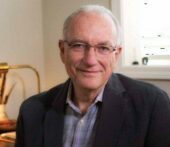Anxiety therapists in Wenatchee, Washington WA
We are proud to feature top rated Anxiety therapists in Wenatchee, WA. We encourage you to review each profile to find your best match.
Affordable Counseling Collaborative Associates
Counselor/Therapist, LMFT, LPC, LMFT-Associate, LPC-Associate, MT-BC NMT
Anxiety is a normal part of life, but sometimes it gets in the way of our living what we think of as our best life. Counseling can help you find tools to not only cope but lessen the impact of anxiety on how you live.
8 Years Experience
Online in Wenatchee, Washington (Online Only)
Dr. Justin D'Arienzo
Psychologist, Psy.D., ABPP
Are you have panic attacks or crippling anxiety? We offer CBT and exposure interventions for bridge and driving phobias as well. Find out more at https://www.drdarienzo.com/anxiety-information-treatment-services/
Online in Wenatchee, Washington
Paul W Anderson, PhD
Psychologist, Licensed counseling psychologist, Licensed Addictions counselor
Life can be scary. Feeling overwhelmed and out of control happens for many good reasons but sometimes we are not able to calm ourselves enough to function the way we want to. I can help you reorder how you think, make choices and relate to others so that you regain a sense of control over your anxieties. Fear and stress do not have to run your life.
43 Years Experience
Online in Wenatchee, Washington (Online Only)
Dr. Ruth Viehoff
Psychologist, PsyD, HSPP
I offer CBT-focused therapy to help you better cope with worry, anxiety, panic, and overwhelm. Often with anxiety, we start to avoid things that cause discomfort or unpleasant emotions. My goal is to help you re-engage with things you have stepped away from due to anxiety and panic. Through therapy, we'll work to understand how patterns of behavior can keep you stuck in anxiety spirals, and find a way forward where you can focus on the things that matter to you.
11 Years Experience
Online in Wenatchee, Washington
Jayson L. Mystkowski
Psychologist, Ph.D., ABPP
While Cognitive-Behavior Therapy (CBT) is highly effective in the treatment of anxiety disorders (e.g., Panic Disorder, Social Phobia, and Obsessive-Compulsive Disorder), clinicians do see some “return of fear,” or partial relapse, in some patients due to a variety of factors. Over the past two decades, treatment researchers, with whom Dr. Jayson Mystkowski had the pleasure of working with at UCLA for over 10 years, have studied “return of fear” and discovered some key variables that may optimize the effects of learning during CBT for anxiety disorders (Craske et al., 2008).
First, evidence suggests that focusing on tolerating fear versus eliminating fear yields better clinical outcomes in the long term. Namely, teaching clients that fear and anxiety are normal feelings, rather than attempting to “down-regulate” such feelings all the time, is more realistic and seems to engender “hardier” clients. Second, helping clients to generate an expectancy that “scary things will not happen,” is very powerful. To do this, it is important for clinicians to create more complex exposure exercises (i.e., tasks in which a client confronts a stimulus of which they are afraid), using multiple feared stimuli instead of one at a time. Then, the lack of a feared outcome becomes particularly surprising and memorable for a client and fear reduction is more potent. Third, increasing the accessibility and retrievability of non-fear memories learned during treatment are powerful factors in mitigating against a return of fear. Craske and colleagues demonstrated that exposure to variations of a feared stimulus, using a random schedule across multiple contexts or situations, is more effective than exposure to the same stimulus, on a predictable schedule, in an unchanging environment. The former paradigm, it is argued, creates stronger non-fear memories that are easier for a client to access when subsequently confronting feared objects or situations outside of the therapy context, than the later scenario.
In sum, clinicians have long been aware that some fear or anxiety returns following very successful CBT treatment. As mentioned above, there are some clear, empirically supported ways to modify the therapy we provide to further help clients generalize the gains made in therapy sessions to the real world.
20 Years Experience
Online in Wenatchee, Washington (Online Only)




